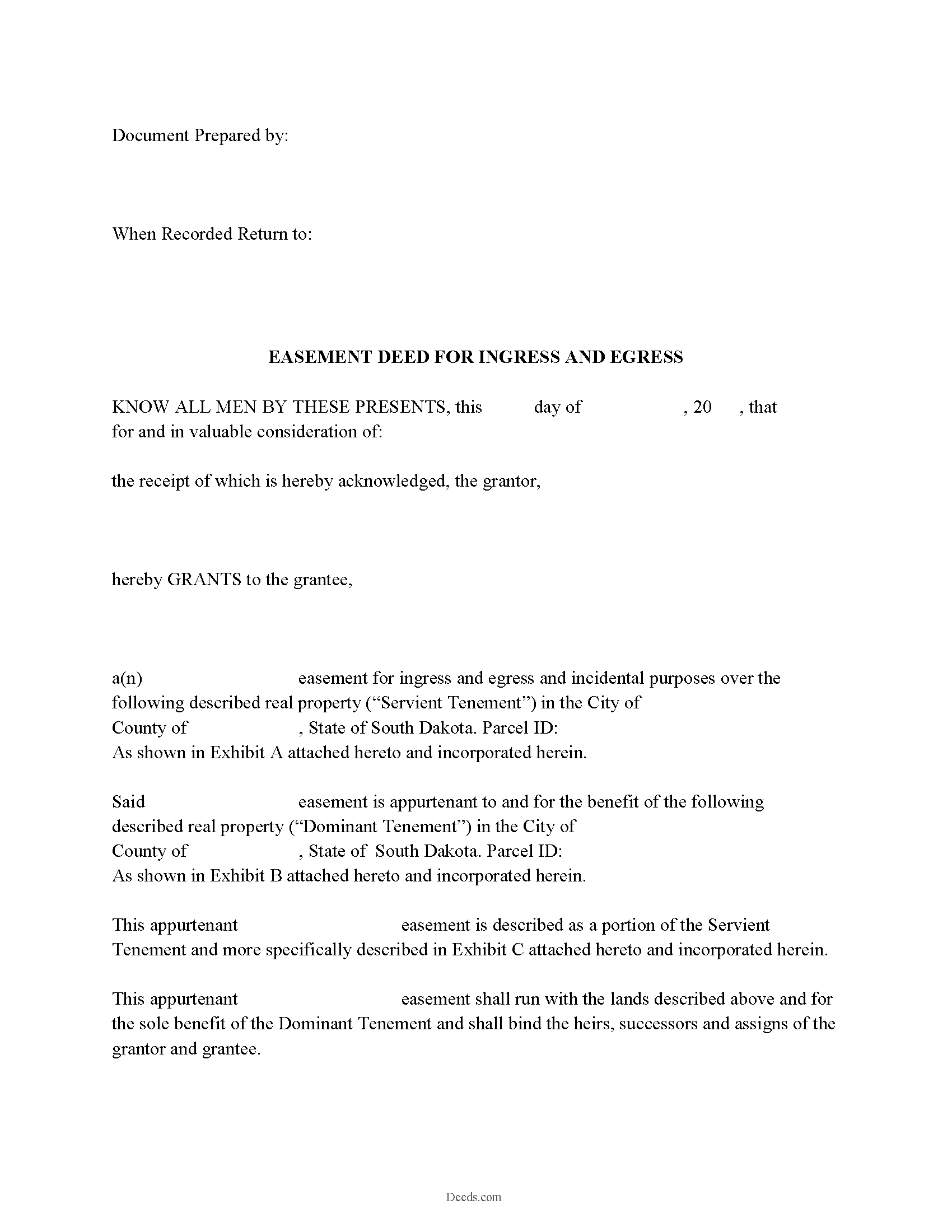Download South Dakota Easement Deed Forms
South Dakota Easement Deed

An easement is a land burden or servitude upon land that may be attached to other land as incidents or appurtenances (43-13-2). The land that an easement is attached to is called the dominant estate, while the land upon which a burden or servitude is laid is called the servient tenement (43-13-3). A servitude in South Dakota can be created only by someone who has a vested estate in the servient tenement (43-13-4). The extent of the easement will be determined by the terms of the grant or by the nature of the enjoyment by which it was required (43-13-5). Specific rules apply to the creation of certain easements in South Dakota, such as with wind easements, which can be granted in the same manner and with the same effect as other easements but must contain additional statutorily required information (43-13-17). A transfer of real property in this state will pass all the easements attached to the property (43-25-30).
In order to present an easement deed for recording, it must be signed and acknowledged or proved by the grantor. If the deed is not acknowledged, it can be proved by a subscribing witness (43-25-26). An easement deed can be proved or acknowledged at any place within the state by a justice or clerk of the Supreme Court or by a notary public. Additional officers are authorized to prove or acknowledge deeds within their own circuit, county, or municipality in the state (18-4-2). In accordance with the Uniform Acknowledgments Law, section 18-5, deeds acknowledged or proved out of state will be valid in South Dakota.
Any instrument that is entitled to be recorded in this state, such as an easement deed, must be recorded in the register of deeds office in the county where the property is located. If an easement deed is not recorded, it will be valid between the parties to it and those who have actual notice thereof (43-28-14). However, the act of recording a duly acknowledged or proved easement deed will allow it to serve as constructive notice to all purchasers and encumbrancers (43-28-15). Every instrument in South Dakota, such as an easement deed, that may affect the title to real property is void as against a subsequent purchaser or encumbrancer of the same property, or any part thereof, in good faith and for a valuable consideration whose conveyance is first duly recorded (43-28-17).
(South Dakota ED Package includes form, guidelines, and completed example)